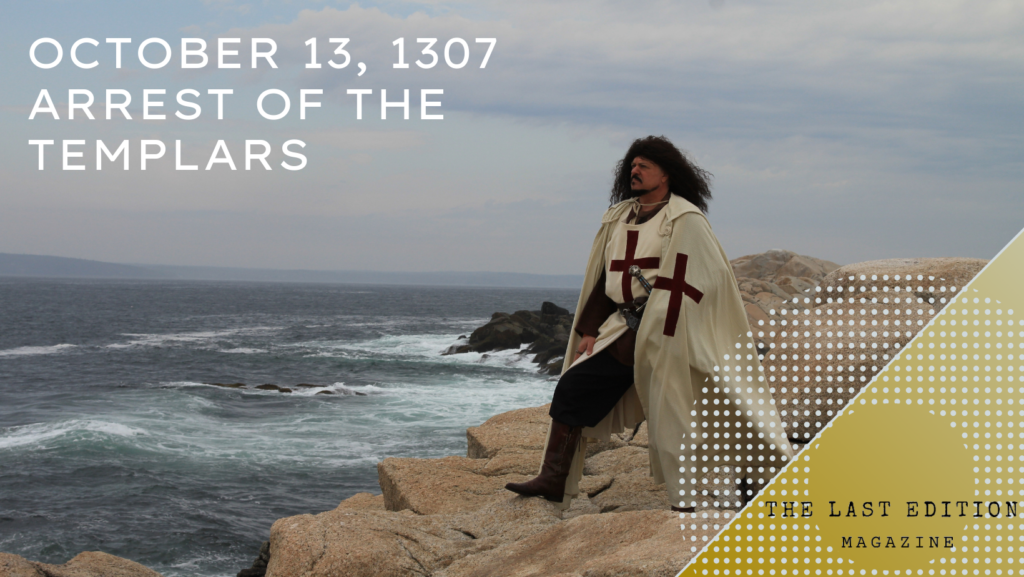On the morning of Friday, October 13, 1307, all the Templars of France, or several thousand in total, were arrested by order of King Philippe IV le Bel, grandson of Saint Louis.
This act of arbitrary violence puts an end to an original order of monk-soldiers, almost two centuries old, which distinguished itself in the Holy Land and acquired power and wealth, thus attracting the jealousy of the feudal lords and the lust of sovereigns.
A prestigious monastic order
The Order of the Temple was born in the Holy Land in 1119, after the First Crusade, to protect pilgrims going to Jerusalem. The prestige of the monk-knights in the white mantle stamped with a red cross was immense during the two centuries that the crusades lasted … despite the betrayal of the great master Gérard de Ridefort at the battle of Hattîn in 1187.
But the Muslims end up driving the Franks out of the Holy Land and seize Saint-Jean-d’Acre on May 28, 1291 despite the heroic resistance of the Templars.
At the beginning of the fourteenth century, the Order of the Temple, driven out of Palestine, still had an impressive military force of fifteen thousand men, far more than any king of the Christendom could have raised. But, from soldiers, the Templars were reconverted into usurers and completely lost sight of the reconquest of the Holy Places.
It is that huge donations have made the order immensely rich and transformed it into one of the main Western financial institutions … and the only one that is secure. He thus manages, as a true banker, the property of the Church and those of the kings of the West (Philippe le Bel, Jean sans Terre, Henri III, Jaime I of Aragon …).
The Templars in Europe
The Templar commanderies cover the whole of medieval Europe with a real spider’s web. They house the monks-soldiers, also with a charitable vocation. European opinion begins to question the legitimacy of the Temple. King Philip the Fair himself remembers that the Templars refused to contribute to the ransom of Saint Louis when he was taken prisoner during the Seventh Crusade. He also hears some nasty rumors about the supposedly depraved and diabolical mores of the knight monks …
The drama
The King urges the Pope to act against the Order and ultimately decides to arrest the Templars on charges of heresy, without bothering to refer the matter to the Pope. Thus all the Templars of France were arrested in the early morning by the seneschals and the bailiffs of the kingdom at the end of a police operation conducted in absolute secrecy by Guillaume de Nogaret.
They are interrogated under torture by the royal commissioners before being handed over to the Dominican inquisitors.
Among the 140 Templars of Paris, 54 were burned after having confessed to practicing sodomy or committed extravagant crimes such as spitting on the cross or practicing “shameless kisses”. Public opinion and the king himself see in it the confirmation of their terrible suspicions about the impiety of the Templars and their connivance with the forces of Evil.
In order not to give the impression of being disowned, the Pope chose the headlong rush and, on November 22, 1307, in turn ordered the arrest of the Templars in all the states of Christendom and the opening of an investigation. about their alleged crimes.
The king obtains from Clement V the abolition of the order, at the Council of Vienna, in 1312. It is formalized on April 3, 1312 by the bull “Vox in excelso”, although it is quite exceptional that an order religious is purely and simply dissolved. With the Temple affair, the Capetian monarchy shows that it intends to follow its political interest and no longer behave as a vassal of the Church.


